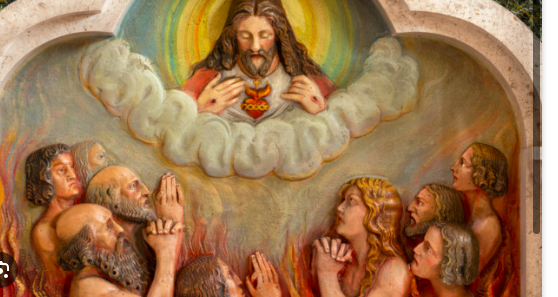Purgatory is a concept within some branches of Christian theology, particularly in Roman Catholicism and Eastern Orthodoxy. It is believed to be a state or place where souls undergo purification to achieve the holiness necessary to enter into the presence of God in heaven. The idea is that while a person may have been forgiven of their sins through faith in Jesus Christ, there may still be a need for purification from the effects or consequences of those sins.
The doctrine of purgatory is not explicitly outlined in the Bible in the way that some other Christian teachings are. However, proponents of purgatory point to several biblical passages that they believe support the concept indirectly. For example:
- 1 Corinthians 3:11-15: This passage speaks of believers’ works being tested by fire. While believers will be saved, some works may be burned up, yet the individual will still be saved, “but only as through fire.” This is interpreted by some as a reference to a purification process after death.
- Matthew 12:32: Jesus speaks of sins that will not be forgiven “either in this age or in the age to come,” which some interpret as suggesting a place or state where certain sins can be forgiven after death.
- Matthew 5:25-26: This passage speaks of coming to terms quickly with an adversary while on the way to court, suggesting a potential parallel to purgatory where one might settle accounts.
It’s essential to understand that the concept of purgatory developed over centuries within Christian tradition and is more explicitly defined in the teachings and traditions of the Catholic Church, especially through the writings of church fathers and later church councils.
Protestant denominations generally reject the idea of purgatory, emphasizing instead the sufficiency of Christ’s sacrifice on the cross for the forgiveness of sins and the immediate transition to heaven upon death for believers.
In summary, while purgatory is not explicitly mentioned in the Bible, proponents of the doctrine point to various passages to support the concept. However, interpretations of these passages vary widely among Christian traditions.
Share this:
- Click to share on X (Opens in new window) X
- Click to share on Facebook (Opens in new window) Facebook
- Click to share on Reddit (Opens in new window) Reddit
- Click to share on LinkedIn (Opens in new window) LinkedIn
- Click to share on Pinterest (Opens in new window) Pinterest
- Click to share on Telegram (Opens in new window) Telegram
